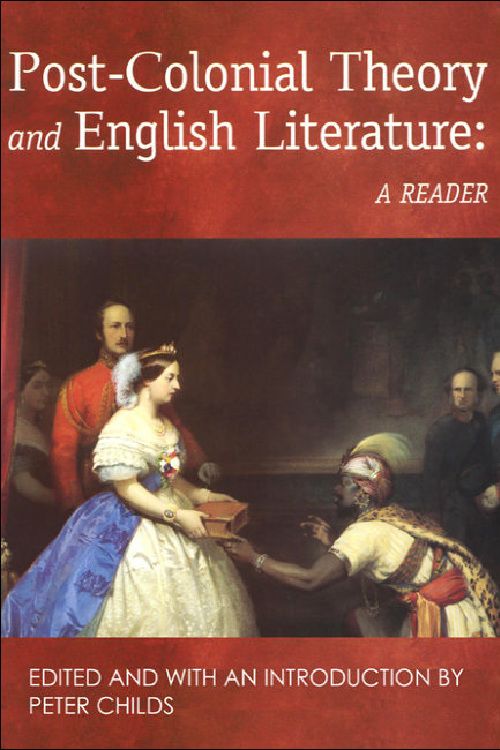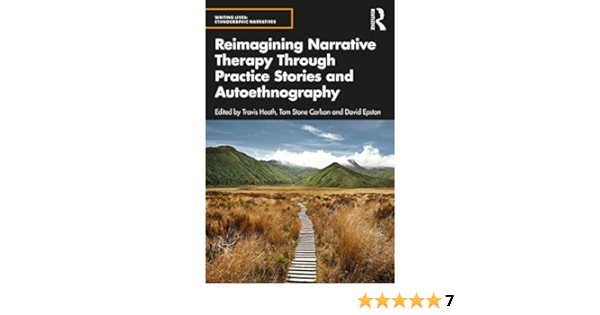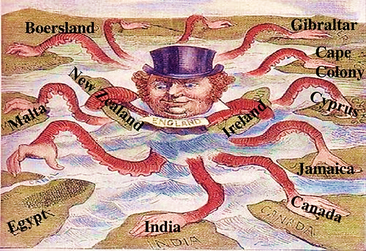Introduction
The echoes of colonialism reverberate through the corridors of history, leaving an indelible mark on the societies it touched. In the realm of modern literature, a powerful and transformative movement has emerged—post-colonial literature. This genre offers a profound reimagining of narratives, offering fresh perspectives on the complex legacies of colonial rule. In this article, we delve into the world of post-colonial literature, exploring its origins, key characteristics, and the significant role it plays in reshaping our understanding of history, identity, and cultural diversity.
The echoes of colonialism, like haunting whispers from the past, continue to reverberate through the corridors of history, casting long shadows over the societies it once subjugated. Yet, from the depths of this complex and often painful legacy, a powerful and transformative literary movement has emerged—the genre known as post-colonial literature. This literary revolution, which gained prominence in the 20th century, offers far more than mere storytelling; it provides a profound reimagining of narratives, presenting fresh and multifaceted perspectives on the intricate legacies of colonial rule.
Post-colonial literature, in its essence, stands as a testament to the resilience and creativity of those who have experienced the tumultuous upheavals of colonization. Its origins can be traced back to the struggles of nations and communities who fought for liberation from colonial powers, and the subsequent journey toward self-discovery and self-definition. Authors from former colonies, often writing in the language of their colonizers, have harnessed the written word as a powerful tool for dismantling oppressive narratives and reconstructing identities rooted in indigenous traditions and experiences.
Key characteristics of post-colonial literature include the deconstruction of colonial stereotypes, the exploration of cultural hybridity, and the interrogation of power dynamics. Writers in this genre confront the colonial narratives that have shaped perceptions of their communities and societies. They challenge stereotypes and present complex, multidimensional characters and cultures that defy reduction to simplistic caricatures. Moreover, post-colonial literature celebrates the interplay of cultures and the rich tapestry of identities that emerge at the crossroads of tradition and modernity.
Perhaps one of the most remarkable aspects of post-colonial literature is its capacity to shed light on the multifaceted layers of identity. It delves into questions of belonging, displacement, and the forging of new identities in the wake of colonialism’s disruptions. By doing so, it not only acknowledges the wounds of history but also facilitates the healing process and encourages a sense of empowerment among those whose voices were once silenced.
In today’s globalized world, post-colonial literature remains as relevant as ever, serving as a bridge between cultures, an instrument of reconciliation, and a source of mutual understanding. It challenges readers to question dominant narratives, confront uncomfortable truths, and engage with the complexities of our shared history. Through its stories and narratives, it illuminates the diverse and vibrant tapestry of human experiences, offering a profound reshaping of our understanding of history, identity, and cultural diversity.
In conclusion, post-colonial literature is an indispensable chapter in the ongoing story of humanity’s quest for self-determination and cultural affirmation. It reminds us that the legacy of colonialism is not a closed book but an evolving narrative, one that continues to shape our world and our collective understanding of it. Through the artistry of post-colonial authors, we are invited to journey through these narratives, to listen to voices long silenced, and to contribute to the ongoing dialogue of reconciliation and healing.
You can also read more about this here: English – Catalog – Reed College
Post-colonial literature emerged as a response to the legacies of colonialism and imperialism, particularly during the 20th century. It gained momentum as nations around the world shook off the yoke of colonial rule and began to grapple with the consequences of their colonial pasts. Authors from formerly colonized regions began to reclaim their voices, shedding light on the multifaceted experiences of colonization and its aftermath.
Post-colonial literature stands as a profound testament to the indomitable human spirit’s capacity for resilience and self-expression in the face of historical injustices. Its emergence during the 20th century marks a pivotal moment in literary history, as it reflects the seismic shifts in the global landscape and the profound desire for self-determination and identity reclamation.
The backdrop against which post-colonial literature unfolds is one of monumental change. Throughout the 20th century, a wave of decolonization swept across Africa, Asia, the Caribbean, and beyond, as nations long subjugated under colonial rule achieved independence. This momentous transformation, often accompanied by struggles, sacrifices, and upheavals, allowed formerly colonized regions to embark on a journey of self-discovery and nation-building.
It was in this transformative context that authors from these regions began to wield the mighty power of the written word to reclaim their voices and narratives. These writers, often bearing witness to the deep scars left by colonization, turned their pens into instruments of liberation. Their literary works became a canvas upon which they painted the multifaceted experiences of colonization and its enduring legacies.
Post-colonial literature is a mosaic of narratives that explore the myriad dimensions of colonialism’s impact, ranging from the political and economic to the cultural and psychological. These narratives unflinchingly examine the brutality of colonization, the erasure of indigenous cultures, and the exploitation of resources. They shed light on the racial hierarchies and power imbalances that underpinned colonial rule and continue to shape post-colonial societies.
At the heart of post-colonial literature is the fervent desire to reclaim cultural identities and celebrate the resilience of indigenous knowledge and traditions. Authors draw from their rich cultural heritage to breathe life into characters who resist, adapt, and persevere in the face of adversity. These narratives become a means of restoring dignity and agency to communities that have historically been marginalized.
Furthermore, post-colonial literature extends its gaze beyond the immediate post-independence era, delving into the complexities of nation-building, governance, and the ongoing struggle for social justice. It explores the challenges of reconciling the past with the present and envisions a future free from the shadow of colonialism.
In essence, post-colonial literature transcends its role as a mere literary genre; it becomes a vital archive of human history, memory, and resilience. It invites readers to bear witness to the triumphs and tribulations of formerly colonized societies as they navigate the turbulent waters of self-determination and identity reconstruction. It is a reminder that the echoes of colonialism still reverberate today, challenging us to confront the past and actively shape a more equitable and inclusive future.
Looking for more insights? You’ll find them right here in our extended coverage: English – Catalog – Reed College

At its core, post-colonial literature is a genre that critically examines the impact of colonialism on societies, cultures, and identities. It challenges dominant narratives and offers a counter-narrative that amplifies the voices of those who were historically marginalized. Post-colonial literature often explores themes of power, identity, resistance, and the complexities of cultural hybridity.
Post-colonial literature, with its roots firmly anchored in the legacy of colonialism, serves as a powerful medium for unveiling the layers of historical injustice and the enduring repercussions on societies, cultures, and individual identities. This genre is not content with perpetuating dominant narratives; rather, it acts as a disruptor, a force that compels us to reexamine our understanding of history and its profound implications.
At its heart, post-colonial literature is a testament to resilience. It is a platform that amplifies the voices that have long been silenced, voices that were once relegated to the periphery of the colonial narrative. These voices, often those of the marginalized and oppressed, rise to the forefront, sharing stories of survival, adaptation, and, ultimately, resistance.
Themes of power and its insidious dynamics are central to post-colonial literature. It shines a harsh light on the mechanisms of oppression and the structures of control that were established during the colonial era. Through its narratives, it lays bare the imbalances of power, both overt and covert, and the enduring scars they leave on societies.
Identity is another profound theme explored within the pages of post-colonial literature. It delves into the complexities of individual and collective identity, dissecting the layers of influence imposed by colonial rule. This exploration often leads to a deeper understanding of the fluid nature of identity, where cultural hybridity and the fusion of diverse influences give rise to new forms of self-expression and resilience.
Resistance, a recurring motif in post-colonial literature, is a testament to the human spirit’s capacity to challenge and transcend oppression. It reveals the myriad ways in which individuals and communities have pushed back against colonial powers, asserting their agency and reasserting their cultural heritage.
Ultimately, post-colonial literature is a powerful instrument of reckoning and reconciliation. It calls upon readers to confront the uncomfortable truths of history and to engage with narratives that are often painful but essential for understanding the world’s interconnectedness. It serves as a bridge that connects past and present, enabling us to grapple with the enduring legacies of colonialism and to envision a more just and equitable future.
In the realm of post-colonial literature, every word is an act of reclamation, every story is an assertion of identity, and every narrative is a call to action. It invites us to listen, to empathize, and to be catalysts for change. Through its pages, we are reminded that the past is not a static entity but a living force that continues to shape the present, and it is our responsibility to ensure that the stories of the marginalized and oppressed are not forgotten but celebrated and honored as integral threads in the tapestry of human history.
Additionally, you can find further information on this topic by visiting this page: English – Catalog – Reed College

Post-colonial literature offers a revisionist perspective on history, highlighting the untold stories and perspectives of colonized peoples. It seeks to correct the historical record and challenge the Eurocentric view of history.b. Voices from the Margins: These narratives often foreground voices from the margins of society—the subaltern, the dispossessed, and the oppressed. Authors provide a platform for these voices to be heard and their stories to be acknowledged.c. Cultural Hybridity: Post-colonial literature celebrates cultural hybridity, where characters navigate the intersections of multiple cultures, often in a globalized world. This blending of traditions leads to rich and diverse narratives.
For a comprehensive look at this subject, we invite you to read more on this dedicated page: Reimagining our futures together: a new social contract for education

Achebe’s “Things Fall Apart” is a seminal work in post-colonial literature. It tells the story of Okonkwo, a Nigerian Igbo leader, and his community as they confront the arrival of European colonizers.b. Arundhati Roy: Roy’s “The God of Small Things” explores the impact of British colonialism on India through the lives of its characters, blending personal narratives with broader historical contexts.c. Ngũgĩ wa Thiong’o: Ngũgĩ’s “Decolonising the Mind” is a pivotal work in post-colonial theory, reflecting on the role of language and literature in the decolonization process.
In the ever-evolving tapestry of post-colonial literature, these literary luminaries have left an indelible mark, shedding light on the profound and enduring impacts of colonialism on diverse cultures.
Chinua Achebe’s “Things Fall Apart” resonates as a poignant and seminal work in post-colonial literature. Through the lens of Okonkwo and his Igbo community, Achebe paints a vivid portrait of the tumultuous encounter between African traditions and European colonialism. The novel’s title itself encapsulates the tragic consequences of this clash, as it vividly illustrates the disintegration of a once-thriving culture. Achebe’s narrative transcends time and place, becoming a universal parable of the complexities inherent in colonialism’s intrusion into indigenous societies.
Arundhati Roy’s “The God of Small Things” invites readers into the intricate tapestry of India’s post-colonial narrative. Her storytelling prowess weaves personal narratives with broader historical contexts, allowing us to witness the multifaceted impacts of British colonialism on a family in Kerala. Roy’s prose is a symphony of emotions, laying bare the reverberations of colonial legacies through the lens of her richly drawn characters. Her work serves as a poignant reminder that the echoes of colonialism continue to shape the destinies of nations and individuals.
Ngũgĩ wa Thiong’o’s “Decolonising the Mind” takes us into the realm of post-colonial theory, where language and literature emerge as powerful tools in the decolonization process. Ngũgĩ’s impassioned reflections challenge us to consider how language shapes our perceptions and influences our identities. His exploration of the role of indigenous languages in resistance and cultural revival urges us to rethink the power dynamics embedded in language itself. “Decolonising the Mind” is not just a book; it’s a call to action, inviting us to reevaluate our linguistic and cultural landscapes in a post-colonial world.
These authors, through their works, compel us to confront the legacies of colonialism that persist in our world today. They remind us that the scars and triumphs of colonial history are not distant relics but living, breathing narratives that continue to shape our understanding of identity, culture, and power. As we engage with their literary legacies, we are prompted to reevaluate the complexities of our shared global history and the ongoing quest for decolonization, both within ourselves and in the world around us.
Looking for more insights? You’ll find them right here in our extended coverage: Postcolonial Identities and West African Literature

Post-colonial literature is more than a literary movement; it is a means of reclaiming narratives and identities. It challenges the narratives imposed by colonial powers and offers a space for diverse voices to share their stories. Moreover, it encourages readers to question the ongoing impacts of colonialism and to engage in critical reflections on power, privilege, and representation.
Indeed, the significance of post-colonial literature extends far beyond the realm of storytelling. It serves as a powerful tool for social and cultural transformation, sparking critical conversations and fostering a deeper understanding of the complex legacies of colonialism. Here, we delve deeper into the multifaceted impact of post-colonial literature:
Reclaiming Narratives: Post-colonial literature acts as a repository of untold stories and silenced voices. It provides a platform for those who were historically marginalized to reclaim their narratives, share their experiences, and assert their existence in the annals of history. Through these narratives, entire communities and cultures find their voices validated and their stories acknowledged.
Challenging Dominant Narratives: Colonial powers often imposed a singular, Eurocentric narrative on the societies they subjugated. Post-colonial literature challenges this dominance by offering alternative perspectives and counter-narratives. It dismantles the myth of the “civilizing mission” propagated by colonial powers, exposing the violence, exploitation, and cultural erasure that often accompanied colonization.
Promoting Cultural Resilience: Beyond mere resistance, post-colonial literature celebrates the resilience and adaptability of cultures that endured centuries of colonial rule. It showcases how societies have absorbed, transformed, and integrated elements of both their indigenous traditions and foreign influences, creating unique and vibrant cultural tapestries.
Questioning Ongoing Impacts: Colonialism’s repercussions are not confined to the past; they continue to reverberate in the present. Post-colonial literature compels readers to confront the ongoing impacts of colonialism, from economic disparities to systemic racism. It serves as a call to action, encouraging individuals and societies to reckon with their colonial legacies and work toward justice and equality.
Fostering Critical Reflection: Reading post-colonial literature is an invitation to engage in critical reflections on power, privilege, and representation. It prompts readers to examine their own positions within systems of privilege and to empathize with those who have historically been oppressed. Through these reflections, readers become active participants in the process of social transformation and decolonization.
In essence, post-colonial literature serves as a catalyst for change, a mirror reflecting the complexities of the past and present, and a compass guiding us toward a more equitable and inclusive future. It is a testament to the enduring power of storytelling to reshape our understanding of the world, challenge the status quo, and ignite the flames of social and cultural justice. Through the pages of post-colonial literature, we embark on a transformative journey of self-awareness, empathy, and collective action.
You can also read more about this here: Gender and Sexuality Studies < University of Chicago Catalog

Conclusion
In a world where the ghosts of colonialism continue to haunt societies and shape global power dynamics, post-colonial literature stands as a powerful and necessary genre. It serves as a vessel for truth-telling, for reclamation, and for the reimagining of narratives. Through the works of post-colonial authors, we gain insight into the resilience and creativity of cultures that have weathered the storm of colonialism. We are reminded that the past is not a closed chapter but an ongoing story, and through the pages of post-colonial literature, we embark on a journey toward a more inclusive, just, and culturally diverse future.
In a world where the ghosts of colonialism continue to haunt societies and shape global power dynamics, post-colonial literature stands as a powerful and necessary genre. It serves as a vessel for truth-telling, for reclamation, and for the reimagining of narratives. Through the works of post-colonial authors, we gain insight into the resilience and creativity of cultures that have weathered the storm of colonialism. We are reminded that the past is not a closed chapter but an ongoing story, and through the pages of post-colonial literature, we embark on a journey toward a more inclusive, just, and culturally diverse future.
Unveiling Hidden Histories
Post-colonial literature is a beacon illuminating the obscured corners of history. It lays bare the harsh realities of colonial oppression, exploitation, and cultural erasure. These narratives reveal the pain and suffering endured by colonized peoples, stories often omitted from mainstream historical accounts. By confronting this painful legacy, post-colonial literature prompts us to acknowledge historical injustices and engage in honest dialogues about restitution and reconciliation.
Reclaiming Cultural Identity
One of the most remarkable aspects of post-colonial literature is its celebration of cultural resilience. Authors from colonized regions use storytelling as a means of reclaiming their cultural identity. They assert that their cultures are not relics of the past but vibrant and evolving forces, adapting and thriving in a post-colonial world. Through their narratives, readers witness the beauty, complexity, and richness of cultures that have persevered despite centuries of oppression.
Challenging Stereotypes and Misconceptions
Post-colonial literature challenges stereotypes and misconceptions that persist about colonized peoples and their cultures. By presenting multi-dimensional characters and nuanced perspectives, these narratives shatter monolithic views and encourage readers to see the world in all its diversity. This challenges the lingering colonial legacy of exoticization and othering, fostering a more empathetic and culturally sensitive worldview.
Fostering a Global Perspective
In a world that is increasingly interconnected, post-colonial literature fosters a global perspective. It reminds us that colonialism’s effects reverberate worldwide, influencing not only colonized regions but also the societies of former colonial powers. The stories of post-colonial authors prompt us to examine our own roles and responsibilities in addressing historical injustices and fostering a more equitable global community.
A Pathway to Reconciliation and Justice
Ultimately, post-colonial literature is a pathway to reconciliation and justice. It invites us to reflect on the moral and ethical dimensions of colonial legacies and to engage in conversations about reparations, cultural preservation, and decolonization. It encourages us to confront uncomfortable truths and work collectively toward a future where power imbalances are rectified, cultural diversity is celebrated, and the wounds of colonialism are healed.
In a world still grappling with the consequences of colonialism, post-colonial literature serves as a testament to the enduring power of storytelling. It reminds us that literature is not just a form of entertainment but a force for change, a catalyst for empathy, and a source of hope for a more inclusive and just world. Through the pages of post-colonial narratives, we find the strength to confront the past, embrace cultural diversity, and imagine a future where the ghosts of colonialism no longer cast their shadow.
Don’t stop here; you can continue your exploration by following this link for more details: Lammes | Hybridity, Reflexivity and Mapping: A Collaborative …
More links
Don’t stop here; you can continue your exploration by following this link for more details: The best modern retellings of classic literature – Pan Macmillan
